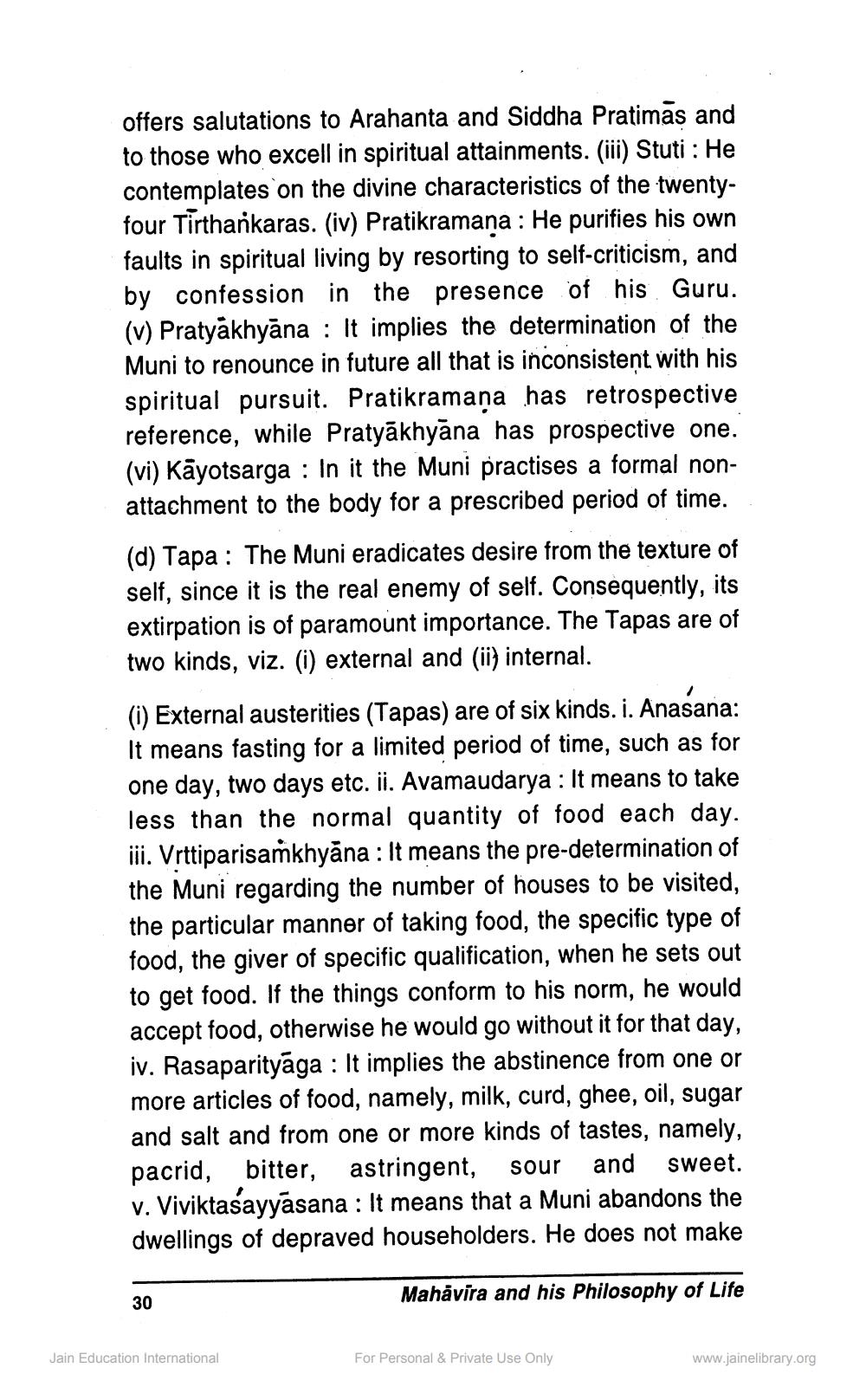________________
offers salutations to Arahanta and Siddha Pratimas and to those who excell in spiritual attainments. (iii) Stuti : He contemplates on the divine characteristics of the twentyfour Tirthankaras. (iv) Pratikramana : He purifies his own faults in spiritual living by resorting to self-criticism, and by confession in the presence of his Guru. (v) Pratyakhyāna : It implies the determination of the Muni to renounce in future all that is inconsistent with his spiritual pursuit. Pratikramana has retrospective reference, while Pratyākhyāna has prospective one. (vi) Kāyotsarga : In it the Muni practises a formal nonattachment to the body for a prescribed period of time.
(d) Tapa : The Muni eradicates desire from the texture of self, since it is the real enemy of self. Consequently, its extirpation is of paramount importance. The Tapas are of two kinds, viz. (i) external and (ii) internal.
(i) External austerities (Tapas) are of six kinds. i. Anasana: It means fasting for a limited period of time, such as for one day, two days etc. ii. Avamaudarya : It means to take less than the normal quantity of food each day. iii. Vrttiparisaṁkhyāna : It means the pre-determination of the Muni regarding the number of houses to be visited, the particular manner of taking food, the specific type of food, the giver of specific qualification, when he sets out to get food. If the things conform to his norm, he would accept food, otherwise he would go without it for that day, iv. Rasaparityāga : It implies the abstinence from one or more articles of food, namely, milk, curd, ghee, oil, sugar and salt and from one or more kinds of tastes, namely, pacrid, bitter, astringent, sour and sweet. v. Viviktaśayyāsana : It means that a Muni abandons the dwellings of depraved householders. He does not make
30
Mahavira and his Philosophy of Life
Jain Education International
For Personal & Private Use Only
www.jainelibrary.org




